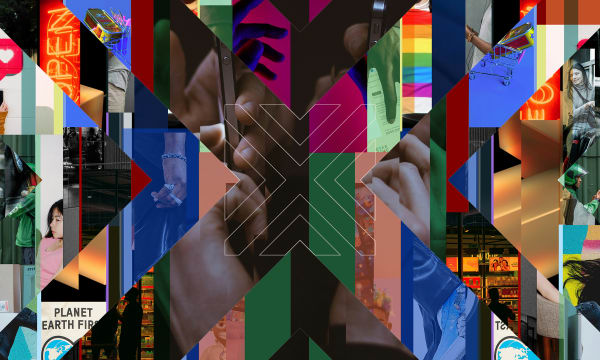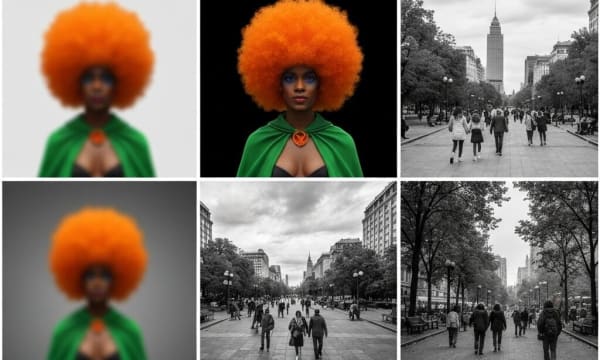Despite an array of technology available for more deliberate collaborations, the potential for South Africa to lead in entertainment partnerships on the continent remains largely untapped. However, by being more intentional, these partnerships can benefit both artists and brands.
Music forms part of our human identity far more than any other cultural touchpoint, according to insights from The Beat Goes On, a global research report produced by VML and Prism Sport+ Entertainment. According to the report, choice of music was found to be more important to people’s self-identity than their religion, race or age group. This was especially true for younger people where its significance is growing as technology continues to democratise access to music.
Technology has also catalysed a notable shift in how fans engage with music, opening new partnership opportunities for brands.
Defining Our Culture
The report illustrates that music is integral to defining our culture, often more so than other cultural elements. Historical events demonstrate how music unites people during challenging times. For instance, Woodstock in 1969 provided a unifying platform during America's civil rights movement and the Vietnam War. It was a moment when music, culture, and social change intersected, creating a powerful symbol of peace and unity.
Similarly, in South African history during the apartheid regime, artists like Miriam Makeba and Hugh Masekela used music to vocalise their opinions on racial segregation and oppression. These artists became the voice of the people, using their music to inspire and mobilise the masses.
In the post-apartheid era, music continued to play a critical role. The rise of Kwaito in the 1990s, with stars like Arthur Mafokate, and the recent explosion of Amapiano, are two examples of how music expresses the aspirations and struggles of a new generation. These genres have provided a platform for young South Africans to voice their experiences and connect with each other, reinforcing the role of music in shaping cultural identity.
For brands, music provides a window into the hearts and minds of a generation, as well as a means to connect with audiences in a meaningful way.
Fans as Co-creators
When rapper Nicki Minaj teased her Pink Friday 2 album in 2023, she told her fans – known as the Barbz – that they would be going to gag city (a reference to the LGBTQIA+ slang term “gag” which means to be awestruck). The Barbz ran with it, creating AI-generated images of Gag City coming to life as an actual metropolis, showcasing their desire to co-create and engage actively with their favorite artist's content.
This is one example of how digital platforms have transformed media consumption. They enable music users to create, distribute, and monetise their work independently – a shift that has given rise to direct-to-fan communities, fostering more personalised experiences. Fans are now active participants, engaging in activities such as remixing, karaoke, and collaborating across locations.
In South Africa, superfan communities are becoming more prominent and influential. Notable examples include:
- A-Reece: Known as Slimes, A-Reece's fans are deeply invested in his music and career, often creating and sharing content that amplifies his brand.
- AKA: The Megacy, AKA's fanbase, showed tremendous support and loyalty for the late rapper, engaging actively with his music and collaborations.
- Tyla: The Tigers, fans of Tyla, are passionate about her music and contribute to her growing popularity through active engagement on social media.
There’s still so much room for artists to create their own fandoms and leverage this as a database. In the same breath, brands could directly target artists’ fandoms and invite them into an immersive brand partnership experience.
Superfans Unwrapped
AI is good for more than creating fan-fiction metropolises. Using AI for audience segmentation reveals diverse interests among fans, highlighting the importance of tailored partnership strategies.
For example, rapper Kendrick Lamar's second largest audience segment is primarily interested in basketball and uses TikTok more than Instagram. Fans of the rapper Future, on the other hand, include a larger portion of younger female pop music fans, who are more likely to follow celebrities like actress Busy Phillipps than traditional hip-hop artists.
South African artists often struggle with positioning themselves for brand partnerships, despite valuable data hidden in their music statistics. Understanding these fan dynamics can help artists and brands create more effective and resonant collaborations.
AKA was an example of a local artist who got this right. His collaboration with Cruz Vodka successfully leveraged his fandom to boost Cruz's brand relevance, demonstrating the power of authentic partnerships. The partnership embraced AKA's persona and adapted Cruz's marketing to align with his image, resulting in a lasting impact even beyond the collaboration period.
Cultural Resonance
Fans universally agree that seeing an artist live is the ultimate form of interaction. Between 2013 and 2023, there has been a massive growth in the number of people wanting to attend live events globally. Brands can tap into this trend by getting involved in, or sponsoring, live music events, thus placing themselves at the heart of fans' most cherished experiences.
Castle Lite's Unlocks campaign created the biggest hip-hop event in South Africa by tapping into the genre's potential and set an example for other brands to follow. Castle Lite's strategic choice to enter the music partnership space through hip-hop allowed the brand to connect deeply with a targeted audience, creating memorable experiences and strengthening brand affinity.
Brands should not only look to replicate the scale of such events but should also focus on understanding the music interests of their potential buyers. By creating platforms for fans to engage with their favourite artists, brands can foster deeper connections and drive long-term loyalty. For example, smaller intimate sessions with customers’ favourite up-and-coming R&B artists could be just as effective for a wine brand.
Putting It into Practice
While opportunities in the music space abound, the level of success brands enjoy will ultimately come down to how much planning and strategy goes into these partnerships. Brands can leverage AI to gather data from music streaming platforms and use this data to create strategic partnerships grounded in culture rather than merely jumping on trends. Investing in intentional and data-driven music partnerships can significantly enhance brand engagement and loyalty.
South African brands have an opportunity to lead in entertainment partnerships by harnessing the power of music and technology. By understanding and engaging with their audience through personalised and data-driven strategies, brands can create meaningful and impactful partnerships that resonate with consumers and fans alike. The insights in The Beat Goes On report provide a roadmap for achieving this goal, highlighting the importance of intentionality, cultural relevance, and the power of fan engagement.
Download The Beat Goes On report here: https://www.vml.com/campaign/the-beat-goes-on


